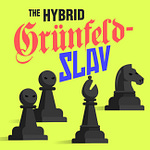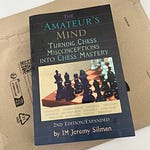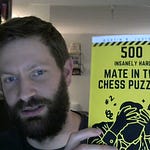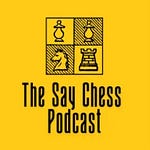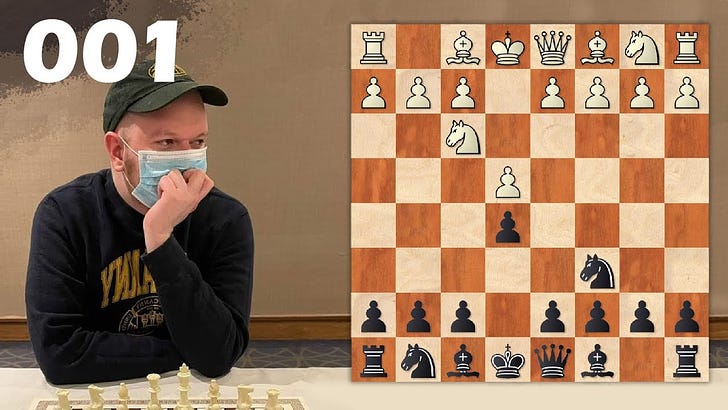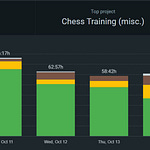This week I interviewed Ono, who is an adult improver, chess blogger, and chess coach. He has an amazing chess blog on Lichess, where he just published a post on blunders.
If someone tells you to quit an addiction that is really hard to do, because it is not an action. It’s the opposite, it’s a non-action. The same goes for the blunder or safety check, which basically says: "make sure you don't blunder".
Better advice would be to start doing press-ups. Sounds ridiculous right? But if every time you feel a craving you drop and do five push-ups, you're more likely to succeed than if all you have to do is... resist. Because that isn’t doing anything. It’s a non-action destined to be about as successful as “don’t think about a pink elephant”.
You might remember that I wanted to investigate and get a better understanding of why beginners blunders in last week’s post. Ono was not so long ago a chess beginner and has climbed to around 1800 Lichess rapid/classical.
Ono started up coaching last year. He is helping beginners get a good understanding of the fundamentals of the game and help them stop blundering, so I thought he would be perfect to talk to about this subject.
We had a really interesting talk, which I hope you will enjoy.
During the interview, Ono mentions a method he calls the Alex Crompton method. If you want to read more about it you can find it described on Alex’s blog.
Some notes I took away from the interview
Chess is a very complex game. When you are a chess beginner everything needs to be very simple. It helps if the student appreciates or acknowledges that chess is difficult and you need to study it to improve.
When the chess beginner starts out they are starting to build their own engine. The first engine needs to be very simple. Then you slowly can build on the engine. Every time you make changes to the engine you will have to expect setbacks before the engine starts running smoothly again. You cannot start with evaluating space advantage as a beginner. The engine is not ready yet.
Is advising a beginner to blunder-checking really good advice? You need to give actionable instructions.
When you see the opponent move ask:
1. What does the move do
2. What does the move no longer doYou need to train this as a habit.
Skills like tactics need training, while chess knowledge can be acquired from reading a book.
Ono’s takeaway from Jacob Aagaard’s ‘Potional Play’ for finding a move: 1. What is my worse-placed piece? 2. Where are the weaknesses? 3. What is my opponent’s plan?
Endgame tips for beginners: promote a pawn or win a pawn.
I hope you liked the interview and please leave a comment if you have any questions.
One last thing before you leave. As a special bonus for paid subscribers, I have added ‘Blindfold Endgame Visualization’ to the list of free ebooks you get when you sign up, so if you want to join click below.
/Martin







